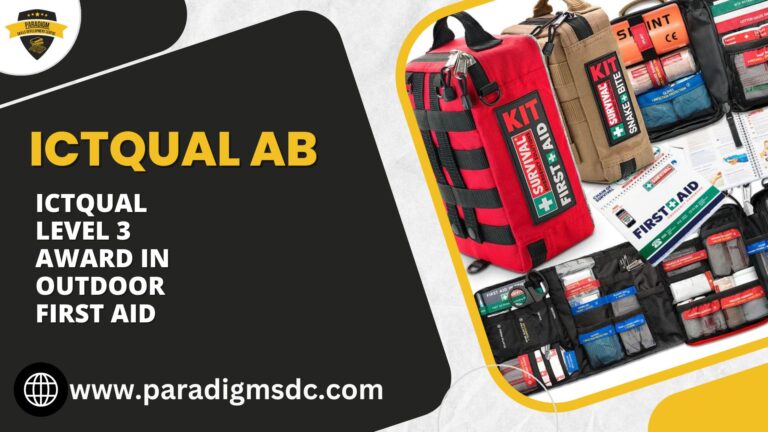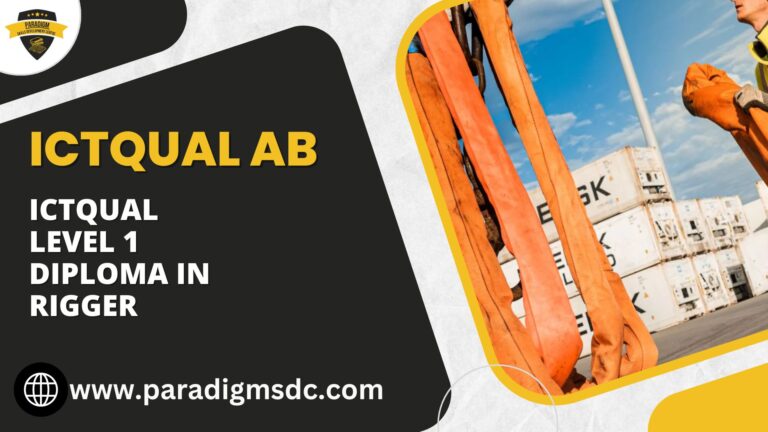Course Introduction
In the ever-evolving field of medical devices, risk management is paramount to ensuring safety and efficacy. The ICTQual ISO 14971:2019 Lead Auditor Course equips professionals with the necessary skills to implement and assess risk management processes effectively. This course is designed to enhance your understanding of the ISO 14971:2019 standard, focusing on the application of risk management principles to medical devices.
Course Overview
The ICTQual ISO 14971:2019 Lead Auditor Course provides a comprehensive framework for understanding the risk management process outlined in the ISO 14971 standard. Participants will delve into the requirements for identifying, evaluating, and controlling risks associated with medical devices, ensuring compliance with international standards. The course combines theoretical knowledge with practical auditing skills, preparing attendees to conduct effective audits in a medical device environment.
Course Study Units
- Introduction to ISO 14971:2019
- Risk Management Principles and Framework
- Risk Analysis
- Risk Control
- Risk Management Plan and Report
- Audit Preparation and Planning
- Conducting the Audit
- Reporting and Follow-Up
Learning Outcomes
Upon completing the course, participants will be able to:
Introduction to ISO 14971:2019
- Understand the Scope and Purpose: Explain the scope, purpose, and significance of ISO 14971:2019 in the medical device industry.
- Identify Key Terminology: Define and use key terms related to risk management and the standard.
- Recognize Historical Context: Describe the evolution and historical context of ISO 14971 and its impact on medical device safety and compliance.
2. Risk Management Principles and Framework
- Explain Risk Management Fundamentals: Articulate the core principles and concepts of risk management in the context of medical devices.
- Develop a Risk Management Framework: Outline the structure and key elements of an effective risk management system.
- Integrate with Quality Management Systems: Explain how ISO 14971 integrates with other quality management standards like ISO 13485.
3. Risk Analysis
- Conduct Hazard Identification: Apply techniques for identifying potential hazards associated with medical devices.
- Perform Risk Estimation: Use methods for estimating the probability and severity of identified risks.
- Evaluate Risks: Evaluate risks using established criteria to determine their acceptability.
4. Risk Control
- Implement Risk Control Measures: Identify and implement appropriate risk control measures.
- Verify Control Effectiveness: Ensure that risk control measures are effective through verification techniques.
- Assess Residual Risk: Evaluate residual risks after controls have been applied to ensure they are acceptable.
5. Risk Management Plan and Report
- Develop a Risk Management Plan: Create a comprehensive risk management plan outlining key activities and responsibilities.
- Maintain a Risk Management File: Compile and maintain documentation for all risk management activities in a structured file.
- Prepare Risk Management Reports: Write detailed reports summarizing risk management activities, findings, and outcomes.
6. Audit Preparation and Planning
- Understand Audit Principles: Explain the principles and types of audits relevant to ISO 14971.
- Plan an Audit: Develop a detailed audit plan, including defining objectives, scope, and criteria.
- Organize an Audit Team: Identify roles and responsibilities of audit team members and organize the team accordingly.
7. Conducting the Audit
- Execute an Audit: Conduct an effective audit by following the planned steps, including opening meetings and evidence gathering.
- Utilize Audit Techniques: Apply various tools and techniques to collect and verify audit evidence.
- Identify Audit Findings: Recognize and categorize audit findings, including non-conformities and areas for improvement.
8. Reporting and Follow-Up
- Write Audit Reports: Structure and write comprehensive audit reports that clearly present findings and recommendations.
- Manage Non-Conformities: Address non-conformities through root cause analysis and implement corrective actions.
- Conduct Follow-Up Activities: Perform follow-up activities to ensure corrective actions are effectively implemented and sustained.
Course Benefits
- Enhanced Knowledge: Gain in-depth knowledge of ISO 14971:2019 and its application to medical devices.
- Practical Skills: Develop practical auditing skills that can be applied in real-world scenarios.
- Career Advancement: Improve your qualifications and career prospects in the medical device industry.
- Networking Opportunities: Connect with industry professionals and experts in risk management.
Who is this Course For?
This course is ideal for:
- Quality Assurance professionals in the medical device industry.
- Regulatory Affairs specialists.
- Risk Managers and Auditors.
- Individuals involved in product development and compliance.
- Anyone seeking to deepen their understanding of risk management in medical devices.
Future Progression
Completing the ICTQual ISO 14971:2019 Lead Auditor Course opens various pathways for professional growth:
- Advanced Auditor Certifications: Pursue advanced certifications in auditing and quality management.
- Specialization in Risk Management: Explore specialized roles in risk management and regulatory compliance.
- Leadership Roles: Position yourself for leadership opportunities within organizations focusing on medical device safety and compliance.
- Continuous Professional Development: Engage in ongoing learning through workshops, seminars, and industry conferences.
Conclusion
The ICTQual ISO 14971:2019 Medical Devices Lead Auditor Course is a vital investment for professionals aiming to excel in the medical device industry. With its thorough curriculum and practical focus, this course prepares participants to navigate the complexities of risk management, ensuring that medical devices are safe, effective, and compliant with international standards. Embrace this opportunity to enhance your skills and advance your career in the dynamic field of medical devices.







